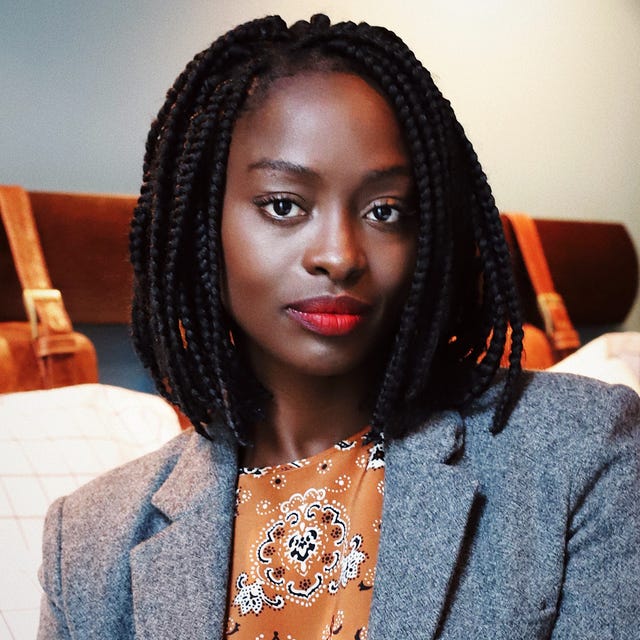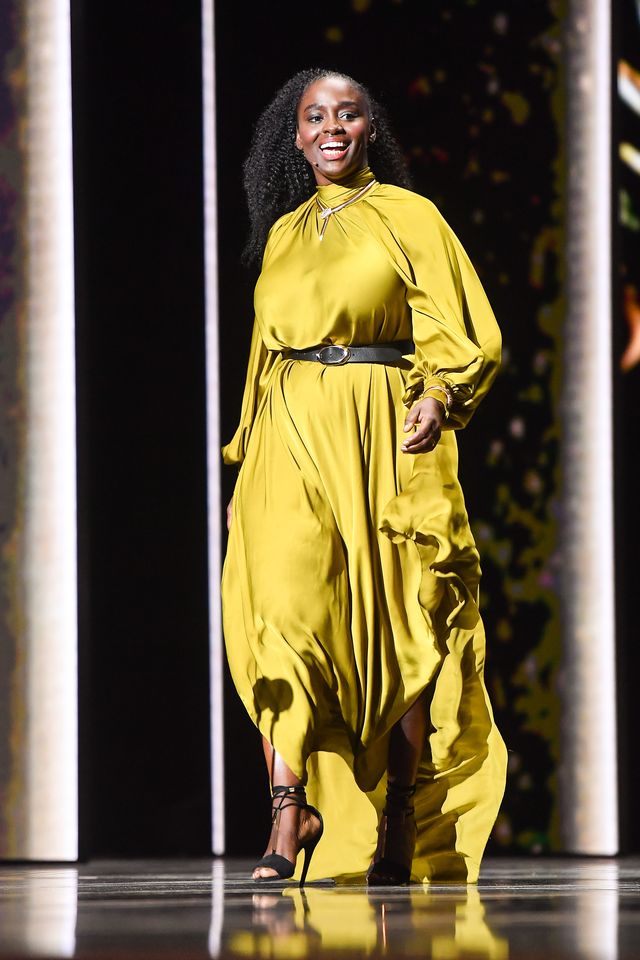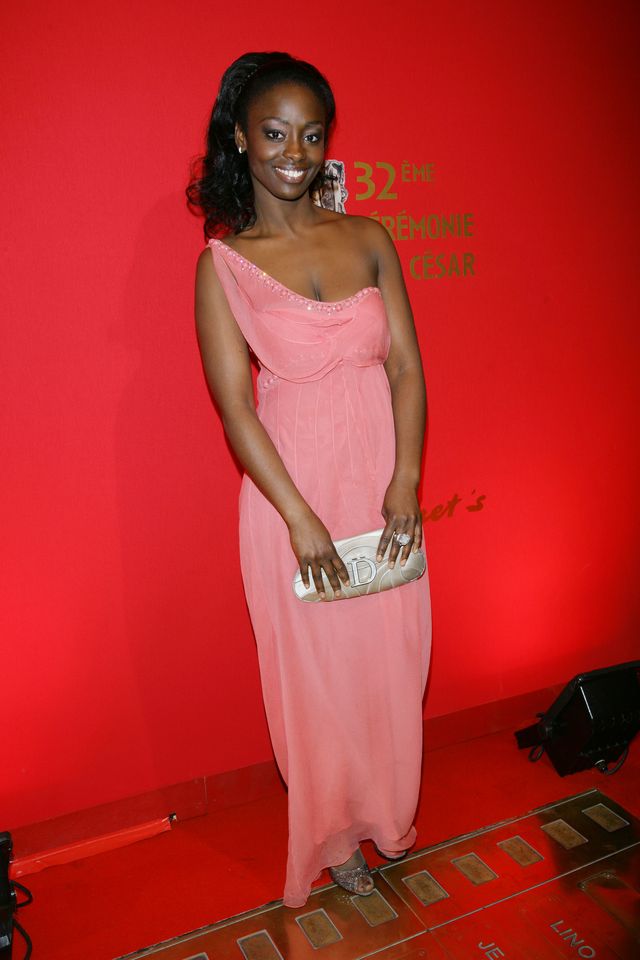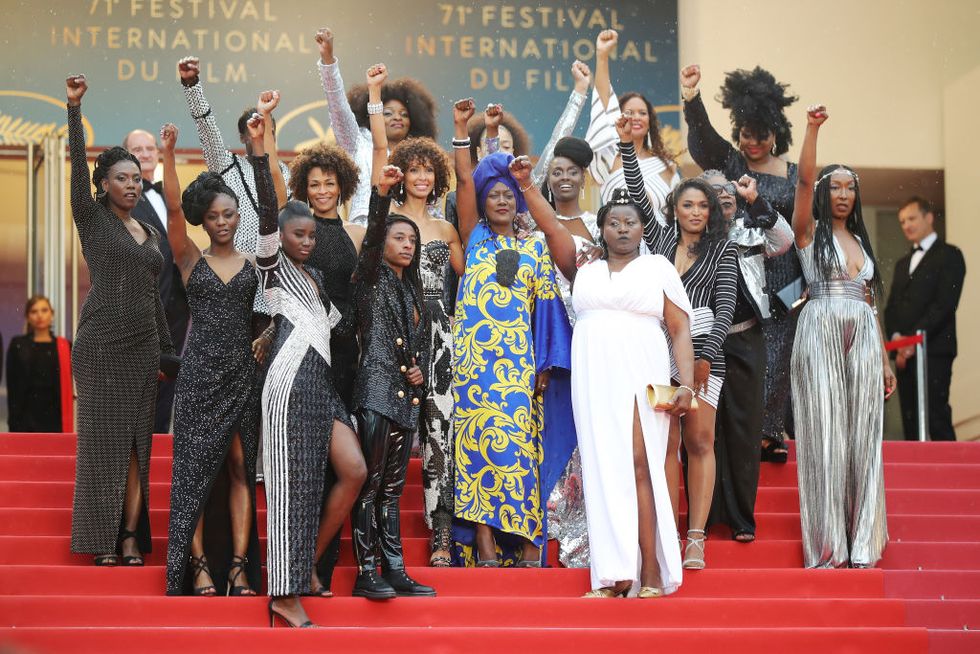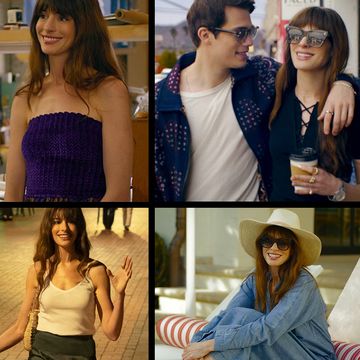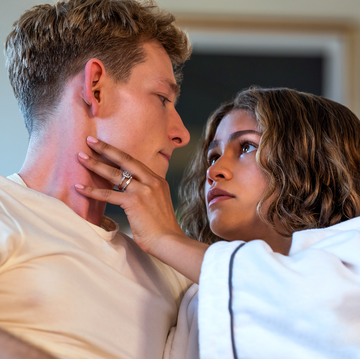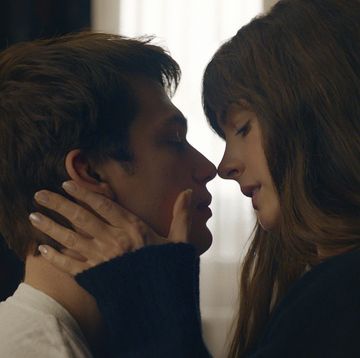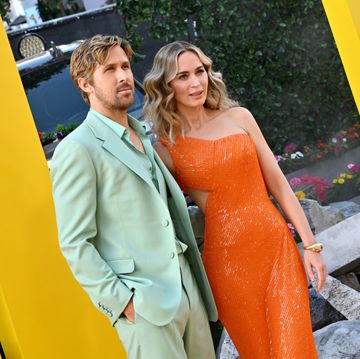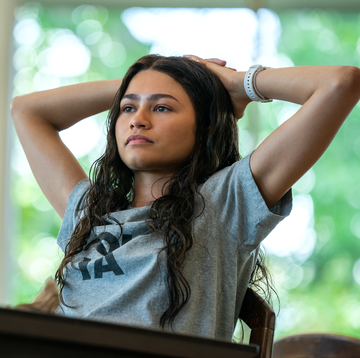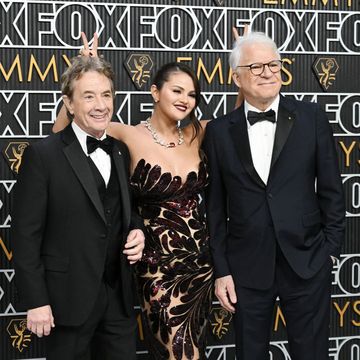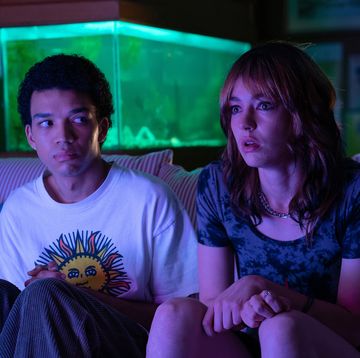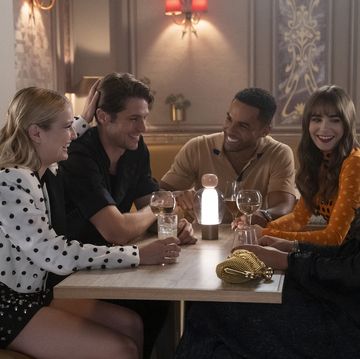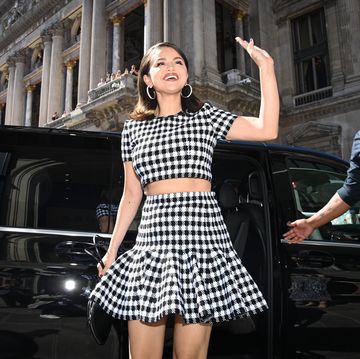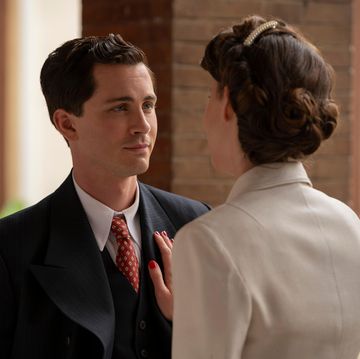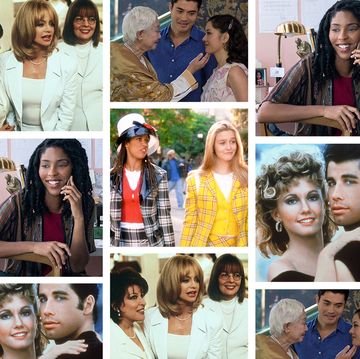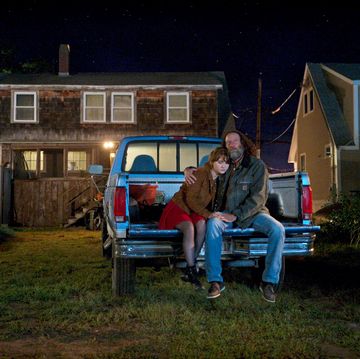French actress Aïssa Maïga greets me with a warm smile as I log into our Zoom call. I tell her that if it weren’t for Portrait of a Lady on Fire, this interview may not have happened.
I saw the Celine Sciamma film at the 2019 Cannes Film festival and fell in love with it. The movie subverts all the tropes that exist within queer cinema, delivering a romantic story through a genuinely queer lens. I followed the entire press tour, from actress Adèle Haenel speaking about her assault at the hands of director Christophe Ruggia all the way through awards season, including the 2020 César Awards. The ceremony is France’s version of the Oscars, and the award is the highest honor for those in French movie business. As I watched clips of this year’s show, I was enthralled by the display of protest from members of the French film community.
The ceremony was particularly spicy for two reasons; one, because when Roman Polanski was announced as the best director winner, Sciamma, Haenel, her co-star Noémie Merlant, and Maiga, a presenter at the ceremony, stood up and walked out in protest of the show's celebration of an alleged rapist. The second reason, which is often overshadowed by the first, was Maïga’s speech earlier in the evening, about the rampant racism, lack of inclusion, and poor representation of people of color in French cinema. “I could not stand the idea of going to this type of ceremony and just smiling and wearing this beautiful dress and pretending that nothing's wrong,” the actress tells ELLE.com.
Maïga was nominated for the Most Promising Actress award at the 2007 César Awards, 10 years after her debut in 1997’s Saraka Bô. I first watched her as magician’s assistant Henriette in the 2015 French lesbian TV film Mystère à la Tour Eiffel (Mystery at the Effiel Tower), and I've followed her career with great interest, enjoying films like Bienvenue à Marly-Gomont (Welcome to Marly-Gomont) and Chiwetel Ejiofor’s 2019 directorial debut The Boy Who Harnessed the Wind. She's portrayed a diverse range of roles, and every performance is executed with fearlessness, sincerity, and confidence.
In her moment of defiance on this year's César stage, Maïga spoke about the discriminatory treatment of actors of color, and how stereotypical roles for Black actors continue to dominate, with no recourse. "We survived whitewashing, blackface, tons of dealer roles, housekeepers with a Bwana accent, we survived the roles of terrorists, all the roles of hyper-sexualized girls," she said onstage. "But we are not going to leave French cinema alone." The speech left the mostly white audience stunned to silence. The communal look of incredulity suggests they had no idea what she was talking about.
The public reaction was split. “I had so much support after the historical César evening and, even in the weeks after from decision-makers in the industry,” she says. “I received messages that said they will be more open-minded about castings in the future. However, there were others who said I am the racist.”
France is a country that prides itself on universalism, a dogma that insists that that to be French is to be a defender of human rights. In other words, French society believes it is truly colorblind. The idea that a Black woman would appear on French television and point out its society's flaws is a radical concept. Feminism is just now being embraced in France, while terms like intersectionality are still finding their way into French feminist rhetoric. It's no surprise that the country that welcomed James Baldwin and adored Josephine Baker is not the racial utopia it thinks is.
The struggles for those in the French film industry are no different from what Black people experience in Hollywood. Maïga knows this, and is looking for solutions that will help everyone—not just the French. Below, we discuss acting, Black solidarity, and her monumental moment at the 2020 César awards.
How did you get into acting?
I was 14, and it was a musical. My first role was playing a flower. I had to beg my parents to let me because there were a lot of rehearsals and it played in huge theaters in Paris. I was in shows off and on after that. This experience awakened within me the passion for acting. My parents were fine with it but the condition was that I maintain good grades in school.
Growing up in France amongst French universalism, how did you maintain the cultures of your family?
My family is proud of their culture. Growing up, I don't really remember that we defined ourselves as Black people, but more as Songhai people, the tribe of my father who was born in Mali. At the same time, as a young child, I was dreaming of having long, blonde, straight hair, [and] I knew that home was different from what I experienced at school or from what I could see onscreen on TV.
Can you talk about the trajectory of your career? Do you feel like you've worked on a lot of projects you're proud of, or did you find yourself pigeonholed at the beginning?
There were very little roles or opportunities for dark-skinned women. Those that were available were ridiculously stereotyped. However, at the very beginning, I was desperate, and after two years I thought about quitting, as I had the feeling I would have to betray my values, my culture, and my family to maintain a career. What helped me was working with directors that offered me roles with complexity. Also people who told me what kind of books I could read to understand my situation.
I've seen so many talented people put out of opportunities in this business because they were not white. I know it's not only about talent: It's about how the system isn’t able to translate the diversity of society in front or behind the screen and among decision makers. There is a feeling that because you are working, it means the system is getting better, which is an illusion to me.
What does better mean? Visibility does not equal proper representation. They are not the same thing, but a lot of people in this business conflate the two, saying, you're in it and they see you, so what's the problem? It's like, well, we're not all drug dealers and sex workers.
That's what some people told me after my at the César Awards speech, asking, “Why did you choose this year to say this when there is Mati Diop with the film Atlantique, when there is Ladj Ly with Les Misérables?” Representation is about what kind of roles you have the opportunity to get, what kind of stories you have the opportunity to tell as a filmmaker, what access you have to finances. It's about normalizing representation and not throwing it at us like we’re asking for favors. Equality is not about having a happy few who shut their mouths because they feel they have the privilege to be in the game.
Speaking of the 2020 Cesar awards, your speech had the audience shook.
I may have had COVID-19 earlier this year because I was sick for weeks before having the strength to go onstage and do my speech. After the speech, the extreme right took to the internet to insult me and call me a racist because I was keeping count of how many Black people were in the room, and I was the problem because there were so many Black people who are okay at the Césars and I just wanted to start trouble. I knew people in the room would feel uncomfortable, but I have to admit I didn't anticipate the massive reaction. That was quite interesting to experience, to see people of all races tell me what I said was necessary because they’ve had similar experiences, or have witnessed the same thing.
It was definitely a watershed moment, but there is still a lot of learning that has to take place. Do you get a lot of requests from people looking for you to educate them or tell you about their experience? How do you deal with that?
I don't have the energy to educate beyond my household. Having said that, I am willing to have real discussions with individuals on the topic. People in France are starting to be a little more afraid of the change that’s coming. I'm not afraid. I'm not interested in fear. It doesn't guide me, and I'm not interested in other people's fear. What interests me is what we have in common and how we're able to deal with our differences and our political points of view. We're at the very beginning of the consciousness of intersectionality. And my hope is in the youth, because the young girls, no matter what color they are, no matter their social background, are ready to fight against patriarchy and racism.
When the George Floyd tragedy happened, I wasn't able to talk to anyone except to my friends and family. Many journalists were looking for Black people to talk to about that. I wasn't able to do that because there was a historical way of driving the conversation in the media. People were so defensive, but I was devastated as a woman, as a Black woman, and as a mother, [and] I just didn’t have the energy.
France has its own relationship with police brutality. I saw you at the women’s march and the Black Lives Matter marches in Paris, the latter led by Assa Traoré. There is an activist revolution happening in French society. Where do you fit with all of this?
For me, it was totally natural in terms of equity, in terms of justice, to support her struggle. I admire her because she has a political voice that is inclusive to every religion, sexual identity, sexual orientation, and social background. People didn't expect that. This is why, apart from the quest for justice for her late brother, this is what makes people connect to her.
With all going on around you, you still manage to put out work. Two years ago, you published a book, and right now you're writing and directing. Can you talk about what you’re working on?
Two years ago, I invited fifteen French Black and mixed-race actresses here in France to discuss our experiences in the industry, and we wrote about it. The book is titled Being Black is Not My Profession (Noire n’est pas mon metier). It’s about stereotypes, about the lack of representation and the lack of opportunity for Black people. The book made a lot of noise here. Now I am co-directing a documentary with Isabelle Simeoni about inclusion on an international scale. From Brazil to the U.S., we wanted to compare situations, struggles, and solutions to the problem. We met with Ava DuVernay, with Ryan Coogler, and Taís Araújo in Brazil. My wish is to empower people who think we can better the situation by improving the situation in workplaces, not only in the film industry.
How do you think we can help one another within the Black diaspora?
It's really important that we give voices to the voiceless. In 2018, I went to the Cannes Film Festival, and with other Black and mixed race actresses staged a protest to bring attention to racism in the French industry. People were surprised to see us unified [and] using such a large platform. We weren’t totally aware of the value of what being together means for people on the other side. Solidarity is the key. One of my dreams is to see this solidarity within the Black diaspora in terms of creativity, business, and values. It was the dream of my father, it was the dream of our own people to see us link, to see us connect on the basis, the values we have [and] we share. That’s really powerful.
